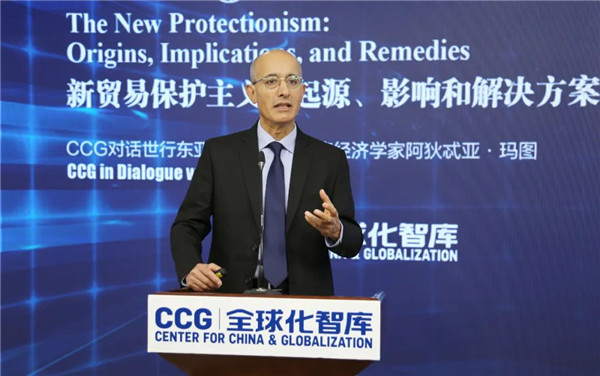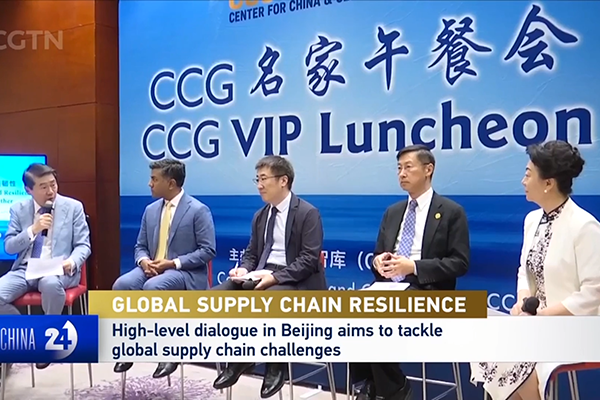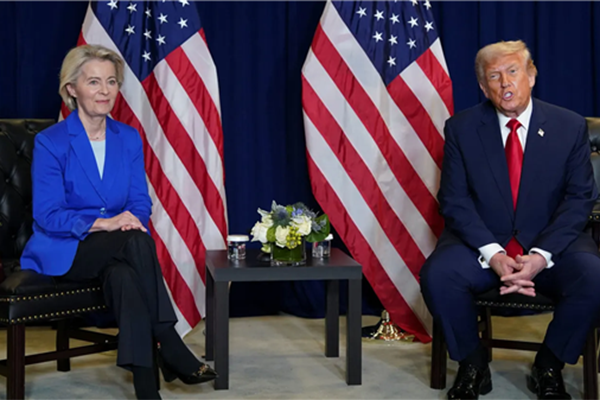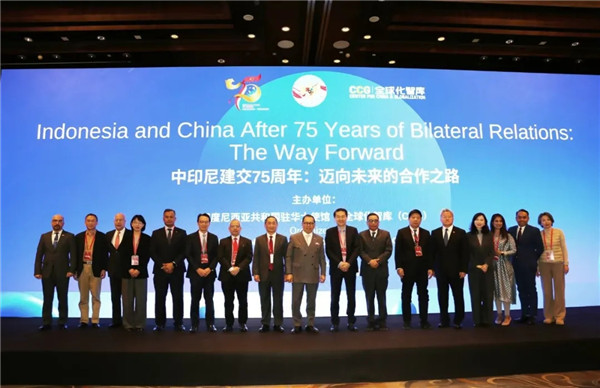Global experts urge cooperation against rising protectionism
January 18 , 2024
Aaditya Mattoo, chief economist of the East Asia and Pacific Region of the World Bank, speaking at a seminar held by the Center for China and Globalization in Beijing on Wednesday.
New protectionism threatens trade and development, which are driven by open markets and predictable rules, experts said, calling for all-round cooperation to tackle such problems.
In recent years, there has been a big increase in protectionist measures around the world. According to data from the Global Trade Alert, a trade policy monitoring initiative, about 3,000 new restrictions were imposed on global trade in 2022, three times as many as those in 2019.
Aaditya Mattoo, chief economist of the East Asia and Pacific Region of the World Bank, said there are three broad concerns behind the recent resurgence of protectionist measures, namely the worries that trade is regressive, risky, or rivalrous.
Corresponding measures are needed to address those concerns. However, given the depth of global interdependence, protectionist measures either fail to achieve the intended goals or do so at significant cost with unintended negative consequences, Mattoo told a seminar held by the Center for China and Globalization on Wednesday.
For example, when governments ask companies to diversify their supply chains, this will generate unintended costs. There is a type of factor called switching costs, which includes technological switching costs and contractual switching costs, said Mattoo, adding that trade itself often offers the best insurance against the risks brought by the concentration of industries.
Also, Mattoo observed that trade patterns are now being molded not just by economics but by politics, citing the example that one of the significant exporter characteristics associated with increased imports to the US and EU is the exporters’ UN voting similarity with the US and EU.
Friend-shoring may lead to a less predictable environment for third-countries, warned Mattoo.
Liu Hong, vice-president of the Center for China and Globalization, said protectionism has different stages. As global economic growth slows down and economic downward pressure increases, protectionism becomes a means for countries to safeguard their interests, making the use of multilateral mechanisms to solve problems also harder, he said.
To deal with the above problems, Mattoo said the world needs to cooperate beyond trade to keep trade open with efforts such as negotiations on minimum tax and harmonization of regulations among nations.
China can help shape the global narrative on international cooperation, he said.
From China Daily , 2024-1-18






